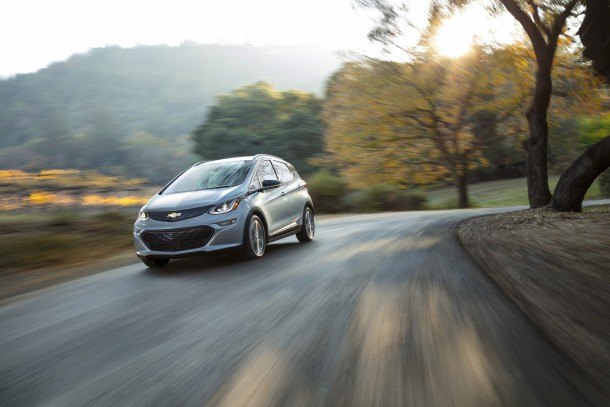Relax, the Government Isn't Taking Away Your EV Tax Credit

Depending on who you talked to, the looming removal of the $7,500 federal tax credit for electric vehicles was either no big deal, or akin to the firebombing of Mother Earth. Much disagreement existed even among the ranks of environmentalists and EV proponents.
Well, worry no more, EV fans. You too, automakers.
The GOP’s revised tax bill, released late Friday, does not do away with the EV tax credit. The public will continue footing part of the bill for every Tesla Model 3, Chevrolet Bolt, etc, for the foreseeable future. At least until an automaker reaches its 200,000-vehicle cap.
In the wrestling match that ensued over the proposed elimination, it looks like the Senate pinned the House.
It was House Republicans who initially proposed cancelling the credit as part of a broad range of tax reforms. Nuh uh, said the Senate in its own tax reform bill. Like many EV proponents, as well as a coalition of automakers, senators felt the elimination of the EV tax credit would cut a fledgling technology off at the knees.
With electric vehicles still not in the mainstream, losing the incentive could have crippled sales of EVs and negatively impacted the automakers — domestic and foreign — currently building (or planning to build) EVs in the United States. Limited range, a lack of fleshed-out charging infrastructure, and a higher sticker price remain chief concerns for buyers. Prices are falling as battery technology advances, but it’s a slow ramp-up.
Under a law passed by President Obama, EV buyers are eligible for a $7,500 federal tax credit (in addition to state or local incentives) until that particular automaker builds 200,000 of them. New buyers can receive the credit for three months after the automaker reaches the cap, after which the credit is halved, then halved again, then eliminated. Tesla and Nissan, having sold the highest number of EVs in the U.S., are furthest down the road to elimination.
Sales of battery electric vehicles rose 24.3 percent in November, pushing the segment’s take rate to 0.61 percent of the market. Over the calendar year, the EV take rate is 0.58 percent. Small potatoes in the grand scheme of things, but higher than 2016’s 0.45-percent take rate.
Sales of plug-in hybrids, which are not eligible for the full tax credit, rose 2.5 percent in November. The take rate last month was identical to that of EVs. Put together, the amount of vehicles sold with a charging plug in November stands at 1.22 percent of the U.S. market.
[Source: Reuters] [Image: General Motors]

More by Steph Willems
Latest Car Reviews
Read moreLatest Product Reviews
Read moreRecent Comments
- Redapple2 Dear lord ! That face. HARD NO.
- Urlik Let’s ban for all. Having that data anywhere leaves it open to the Chinese government potentially hacking systems to get the data.
- Redapple2 Gen 1 - 8/10 on cool scale.Gen 2 - 3/10.
- SCE to AUX "...to help bolster job growth and the local economy"An easy win for the politicians - the details won't matter.
- Kjhkjlhkjhkljh kljhjkhjklhkjh so now we will PAY them your tax money to build crappy cars in the states ..


































Comments
Join the conversation
The tax rebate is wrong for a variety of reasons but I find it especially appalling that they failed to cap the price of the vehicles eligible for it. Can Democrats and Republicans at least agree to the following: 1. The only way to get any real environmental benefit from EV's is to sell mainstream models that sell by the millions. It makes scarcely little environmental impact to subsidize 80-140k+ cars as the market for those cars is a tiny percentage of the overall market. 2. The wealthy don't need a 7500$ rebate on their taxes and it may not factor into their decision to buy a trendy electric car. People that can afford to spend 80-140k on a vehicle will probably buy it regardless of the 7500$ tax rebate. At the margins there might be a few stretch buyers depending upon the rebate, but, again, what does a few marginal buyers in a 16 million annual auto market have to do with the environment? At a minimum, we should all be able to agree that any tax rebate should be available for cars that cost less than 50k.
So much for moderation.